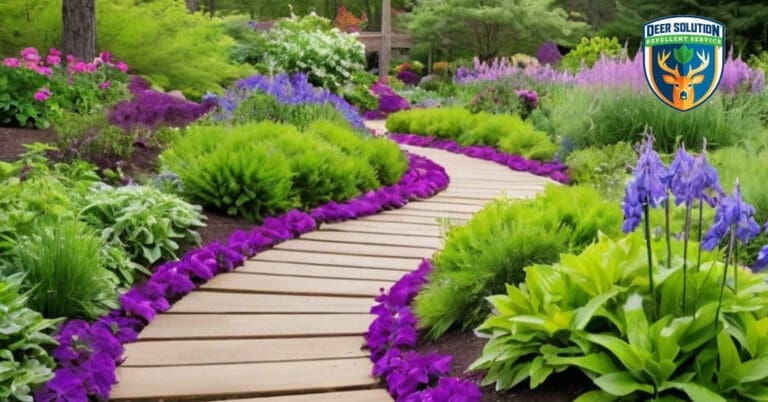Understanding the dietary preferences of deer is crucial for gardeners aiming to protect their beloved plants. Among the queries that arise is, do deer eat Canterbury bells? Canterbury bells (Campanula medium), known for their striking bell-shaped flowers, can indeed attract deer, especially when natural food sources are scarce. However, with thoughtful planning, you can create a garden that is less appealing to these graceful yet often troublesome visitors.
Recognizing Deer Preferences
Deer are opportunistic feeders with a taste for various vegetation. While they might find Canterbury bells palatable, these plants are not typically at the top of their list. Deer prefer tender, moist vegetation, often sampling leaves, buds, and flowers from plants like tulips or hostas. Understanding these preferences helps gardeners anticipate which plants might be more susceptible to deer browsing. Additionally, deer have seasonal preferences, often changing their diet based on the availability of different plants throughout the year. In spring and summer, they might favor lush, green foliage, while in fall and winter, they might turn to woody plants and bark.
Creating a Deer-Resistant Garden
To cultivate a landscape less inviting to deer, consider these strategies:
- Incorporate Deer-Resistant Plants: Integrating plants that deer generally avoid can make your garden less enticing. Species such as lavender, foxgloves, and yarrow can provide both beauty and resilience. Additionally, plants with strong scents, fuzzy leaves, or thorny stems are often less appealing to deer. Examples include rosemary, sage, and holly.
- Strategic Plant Placement: Position more vulnerable plants closer to your home or among deer-resistant varieties. This mixed planting technique can help shield your Canterbury bells. By placing less palatable plants around the perimeter of your garden, you create a natural barrier that can deter deer from venturing further in.
- Maintain Dense Planting: Creating a dense planting arrangement can confuse deer, making it harder for them to move through your garden and access favored plants. Dense planting can also create a microclimate that supports the growth of certain plants while making it less comfortable for deer to navigate.
- Use Physical Barriers: Installing fences or netting can provide a physical barrier that prevents deer from accessing your garden. While this might require an initial investment, it can be a highly effective long-term solution. Ensure that fences are at least 8 feet tall, as deer are capable jumpers.
Understanding Eco-Friendly Repellent Techniques
When considering how to protect your garden from deer, exploring eco-friendly repellent techniques is beneficial. These methods aim to discourage deer from entering your garden without harming them or the environment. Regularly applying natural repellents can help reduce deer activity, aligning with sustainable gardening practices. Repellents can be made from ingredients such as garlic, hot pepper, or egg solids, which create unpleasant tastes or smells for deer. Additionally, motion-activated sprinklers or lights can startle deer and deter them from entering your garden.
Benefits of Professional Deer Management Services
For those encountering persistent deer issues, professional services offer tailored solutions designed to fit your specific landscape needs. Engaging with experts who understand deer behavior can significantly enhance your garden’s protection. These professionals can assess your garden and recommend a combination of plant choices, physical barriers, and repellents that work best for your situation. They can also provide ongoing maintenance and monitoring to ensure that your garden remains deer-free.
While addressing deer-related landscape challenges can seem daunting, Deer Solution offers a specialized approach grounded in our eco-friendly ethos and decades of expertise. By focusing on sustainable practices, Deer Solution provides tailored support for maintaining the health and beauty of your landscape. Our team of experts is dedicated to helping you create a garden that thrives despite the presence of deer. We understand that every garden is unique, and we work closely with you to develop a customized plan that meets your specific needs.
In addition to plant selection and physical barriers, Deer Solution also offers advice on habitat modification. By making your garden less attractive to deer, you can reduce the likelihood of them visiting. This might include removing or relocating plants that deer find particularly appealing, as well as managing nearby wooded areas to reduce cover and food sources for deer.
Ultimately, the goal is to create a harmonious balance between enjoying a beautiful garden and coexisting with local wildlife. With the right strategies and support, you can protect your plants from deer while still fostering a healthy and vibrant ecosystem. Deer Solution is committed to helping you achieve this balance, ensuring that your garden remains a sanctuary for both you and the plants you cherish.








